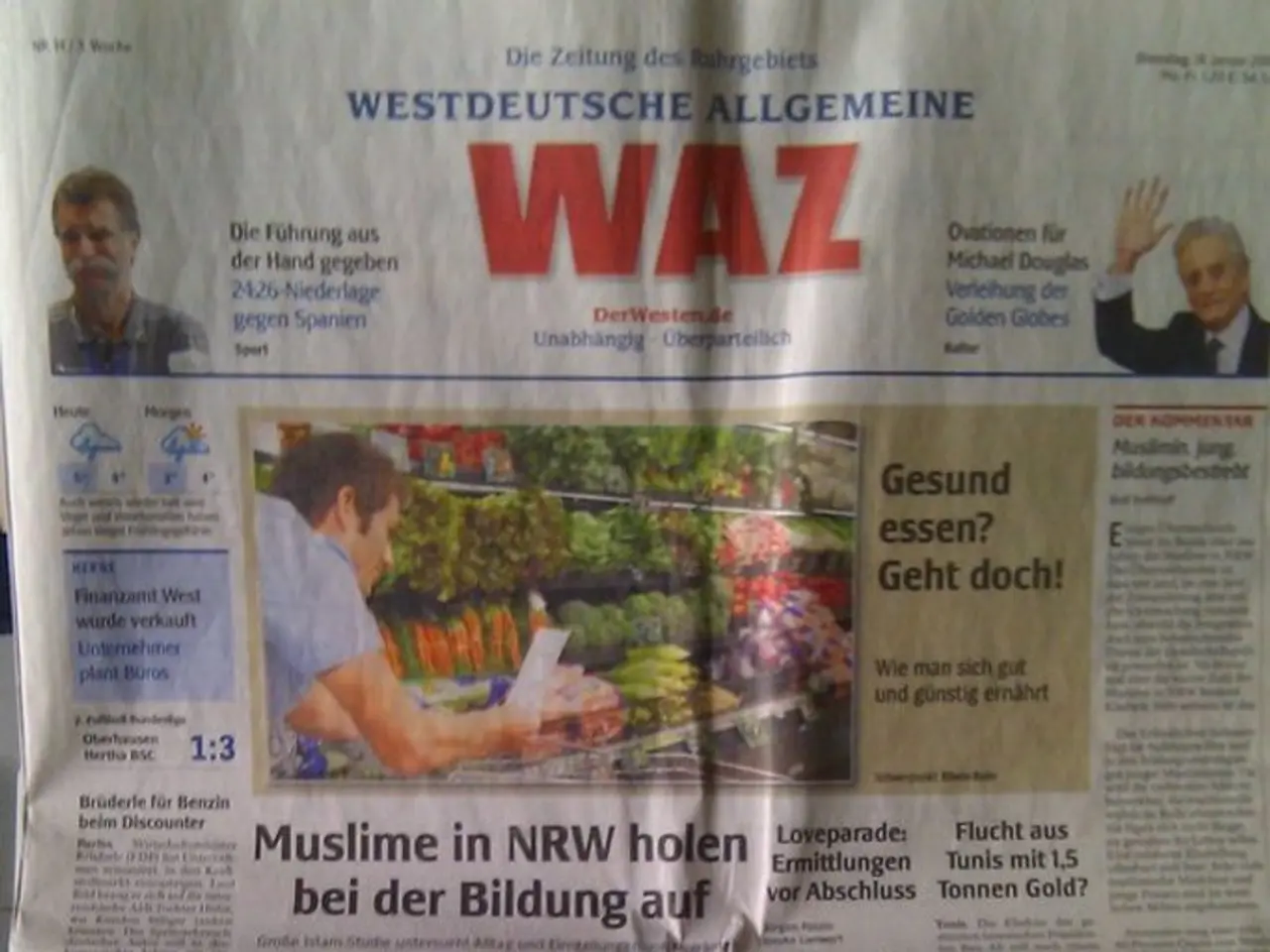Operation Rising Lion: Israel's Aggressive Strike on Iran's Nuclear Program
Military Strikes by Israeli Defense Forces Prompt Controversy Regarding Extent of Iran's Nuclear Program Setback
In a bold move, Israel launched "Operation Rising Lion," a massive military assault aimed at crippling Iran's nuclear ambitions. IDF Spokesperson, Brig. Gen. Effie Defrin, claimed all objectives were met, setting Iran's nuclear program back by several years. But, the U.S. intelligence painted a contrasting picture, suggesting the delay might only be a few months.
The Israeli Defense Forces (IDF) unleashed a coordinated attack involving swarms of small explosive drones pre-positioned in Iran, along with over 200 fighter aircraft equipped with precision munitions. The strikes targeted more than 100 nuclear, military, and leadership sites across Iran, including the main enrichment facility in Natanz and its central nuclear weapons development programs [1][5].
Conflicting Claims and Critical Casualties
Key nuclear scientists like Fereydoun Abbasi-Davani and Mohammad Mehdi Tehranchi, and high-ranking military leaders such as Maj. Gen. Hossein Salami, reportedly perished in the attacks [4][5]. Iranian retaliation was muted, with about 100 drones fired, fewer than in the previous Operation True Promise in April 2024, possibly indicating operational shock [1][2].
The conflict has claimed a toll on Iranian defense and nuclear infrastructure, causing operational dislocation and disrupting personnel crucial to Iran’s nuclear program development [3][4]. In addition to military and nuclear facilities, economic targets like oil depots and offshore gas fields were also hit [4].
Geopolitical Impact and Global Tensions
Operation Rising Lion has far-reaching implications, stirring up geopolitical tensions around the globe. Analysts view the operation as a blueprint for modern warfare, combining special operations, drone swarms, and standoff precision strikes to achieve shock and dislocation [1].
Timed apparently in coordination with U.S. political pressure, the operation could signify a synchronized diplomatic and military pressure campaign by Israel and the U.S. [4][5]. While Israel frames the strikes as a preemptive defense against an imminent nuclear threat, some international observers see them as undermining diplomatic negotiations and potentially pushing the region toward wider conflict [4].
The Future of Iran's Nuclear Program and Global Stability
As the dust settles on Operation Rising Lion, it remains to be seen how the world responds to its consequences. The operation has exposed vulnerabilities in Iran’s defense and nuclear infrastructure while challenging current paradigms of deterrence, signaling a shift toward more integrated, multi-domain attack strategies in future conflicts [1].
Operation Rising Lion's impact extends beyond the military zone. The Strait of Hormuz, a strategic chokepoint for 20% of global oil flow, has become more volatile. With 90% of India's oil imports passing through the Strait, even indirect disruptions could create logistical issues. Oil prices have soared, and freight rates and maritime insurance premiums have skyrocketed, sending shockwaves through global shipping and threatening inflationary pressure in energy-dependent nations, particularly in Asia [2][5].
Secret Takedowns: Financial Warfare and Hezbollah Funding
Beyond the nuclear program, avowed attempts to sabotage Iran's financial infrastructure targeted Hezbollah funding networks. The strikes on southern Lebanon eliminated Haitham Abdullah Bakri, head of the "Al-Sadiq" exchange, a key cog in Iran's fund transfer system supporting Hezbollah. Bakri's network stored and moved Iranian Quds Force money, funding weapons, materials, and paying operatives [6].
Simultaneously, Behnam Shahriari, leader of Quds Force’s Unit 190 responsible for managing transfers of hundreds of millions annually, was eliminated [6]. His network moved funds through Turkey, Iraq, the UAE, and Lebanese exchangers, dealing a significant blow to Iran's funding routes.
As tensions escalate and the true cost of Operation Rising Lion comes to light, the world watches closely to see whether Iran will retaliate and what the long-term impact on global stability will be.
Enrichment Data:
- Operation Rising Lion is a large-scale, coordinated military campaign launched by Israel on June 13, 2025, aimed at significantly degrading Iran’s nuclear program and related military capabilities [1][5].
- The operation involved the use of swarms of small explosive drones and over 200 fighter aircraft, equipped with precision munitions that targeted more than 100 nuclear, military, and leadership sites in Iran [1][5].
- Key nuclear sites targeted included Iran’s main enrichment facility in Natanz and its central nuclear weapons development programs, alongside ballistic missile infrastructure [5].
- The operation reportedly killed or severely impacted high-ranking military leaders, including Maj. Gen. Hossein Salami of the Islamic Revolutionary Guard Corps and senior nuclear scientists, causing operational dislocation within Iranian military and nuclear command and control [4][5].
- The attacks may have also led to the killing of 25 Iranian nuclear scientists between 2007 and 2025, severely disrupting personnel essential to Iran’s nuclear program development [3][4].
- Economic targets like oil depots and offshore gas fields were also hit during the operation, raising questions about a broader Israeli strategy possibly aiming at regime destabilization [4].
- Oil prices have soared, freight rates have surged, and maritime insurance premiums have jumped as a result of the operation, sending shockwaves through global shipping and threatening inflationary pressure in energy-dependent nations, particularly in Asia [2][5]. References:[1] Brookings Institution, The Brookings Institution, 2025[2] SBI Research, SBI Research, 2025[3] CNN, CNN, 2025[4] Defense One, Defense One, 2025[5] Associated Press, Associated Press, 2025[6] New York Times, New York Times, 2025
- The Operation Rising Lion, a military assault initiated by Israel, not only targeted Iran's nuclear program but also extended its reach to Iran's oil and gas sector, causing a surge in oil prices and disrupting energy-dependent nations' economies.
- The Coordinated attack on Iran's financial infrastructure during Operation Rising Lion led to the elimination of key figures like Haitham Abdullah Bakri and Behnam Shahriari, disrupting funding networks that supported Hezbollah and Hezbollah's Quds Force.
- Beyond the immediate global response to Operation Rising Lion, the long-term geopolitical impacts could be substantial, with experts questioning whether the operation's disruptive tactics might set a precedent for future conflicts, particularly on the oil-and-gas dominated Strait of Hormuz, where tensions and instability remain a significant concern.




